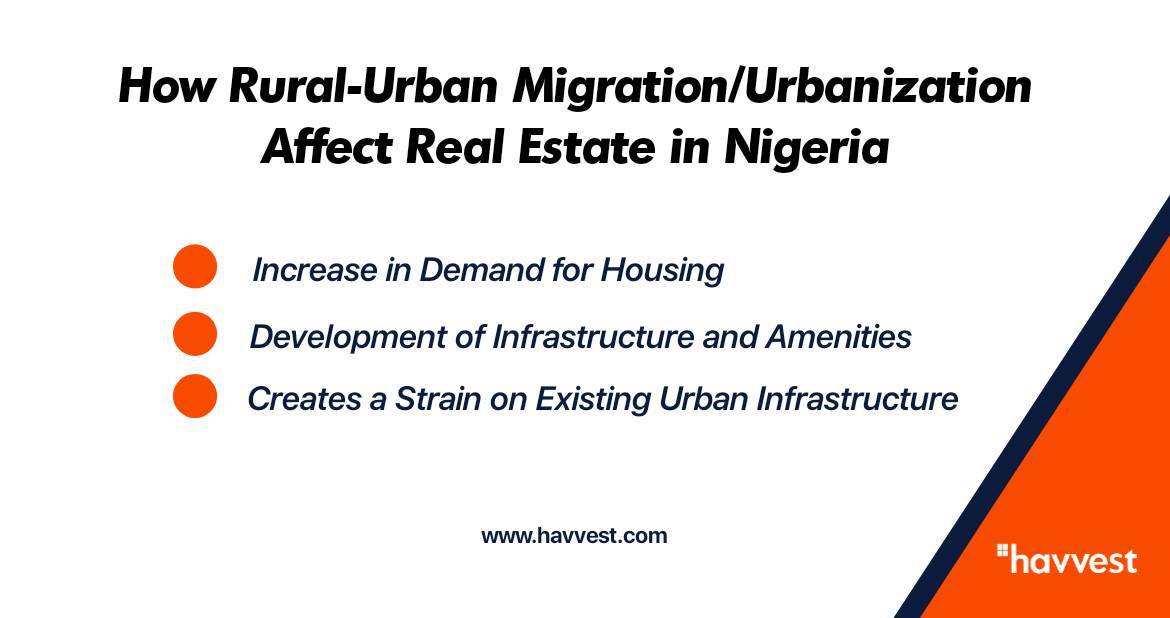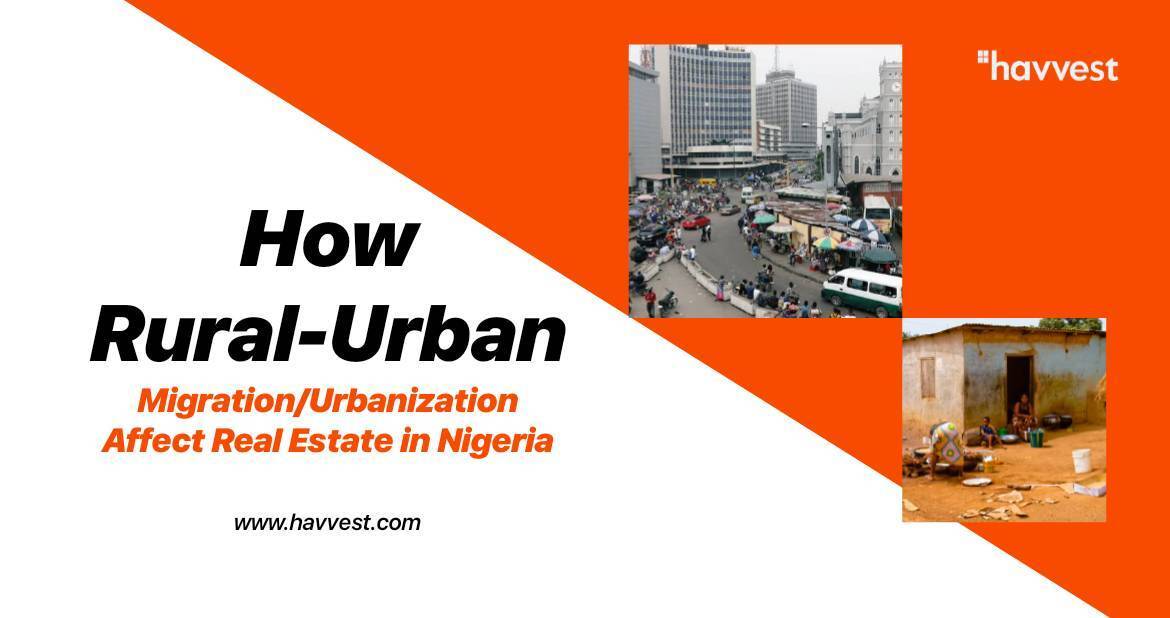Imagine there’s a delicate dance between urbanisation and real estate. The effect of this tango will either bring possibilities or difficulties that will affect Nigeria’s housing sector. The effects on real estate are glaringly obvious as rural residents move to metropolitan areas in quest of better socioeconomic prospects and means of subsistence.
The phenomenon of rural-urban migration and urbanisation has brought about a clash of interests and challenges in the real estate sector. On one side, there is an increasing population migrating from rural areas to urban centres in search of economic opportunities and improved living conditions. This surge in migration leads to a heightened demand for housing and infrastructure in urban areas.
On the other side, the existing real estate market struggles to keep up with the pace of urbanisation, resulting in limited affordable housing options and inadequate infrastructure to accommodate the growing population.
This conflict between the rising demand and the limitations of the real estate market sets the stage for an exploration of how rural-urban migration and urbanisation impact the real estate landscape in Nigeria.
In this blog post, we will explore the effects of rural-urban migration on Nigeria’s real estate landscape, analysing both the challenges and opportunities it presents.

Increase in Demand for Housing
The surge in rural-urban migration leads to an increased demand for housing in urban areas. As more individuals seek better livelihoods in cities, the need for affordable, accessible, and quality housing options escalates.
This heightened demand exerts pressure on the real estate market, resulting in rising property prices and a need for more residential developments to accommodate the growing population.
Rural-urban migrants frequently bring unique housing choices established by their rural background. Unlike traditional rural housing, which promotes large compounds or agricultural land, urbanisation results in a trend towards flat living or compact dwelling alternatives.
Real estate developers and investors must comprehend changing consumer tastes and alter their offers to meet the demands of this emerging urban population.
Development of Infrastructure and Amenities
The inflow of migrants puts local governments and urban planners under pressure to invest in transit networks, water supply, sanitation, and healthcare services. To accommodate the rising population’s demands, urbanisation encourages the development of infrastructure and facilities in urban areas.
Therefore, real estate developers can capitalise on this trend by selectively investing in regions with imminent or planned infrastructure development, boosting future growth potential and return on investment(ROI).
As more people move to cities, there is a greater need for commercial and retail space. Migrants from rural areas to cities seek jobs and access to a broader choice of products and services, which has resulted in the construction of retail malls, office buildings, and commercial centres.
Real estate investment companies or developers can now take advantage of this potential by spotting developing commercial areas and thoughtfully constructing properties that meet the shifting commercial and retail needs of the metropolitan population.
Creates a Strain on Existing Urban Infrastructure
While rural-urban migration brings economic benefits, it also places strain on existing urban infrastructure. Overburdened transportation networks, inadequate utilities, and overcrowding can lead to challenges such as traffic congestion and limited access to basic services.
It is essential for real estate developers and urban planners must collaborate with local authorities to ensure the provision of essential infrastructure and sustainable urban development that can accommodate the influx of migrants.
In conclusion, rural-urban migration continues to shape Nigeria’s real estate sector, presenting both challenges and opportunities. As the urban population expands, novel solutions to meet the need for housing, infrastructural development, and commercial areas are required.
Real estates investment companies like Havvest, developers, investors, and urban planners strive to adapt to the shifting dynamics of rural-urban migration and may traverse these hurdles and capitalise on Nigeria’s real estate market’s potential for development and success.
Havvest has understood the implications of rural-urban migration on real estate and continues to make informed decisions that contribute to the sustainable development of urban areas, ensuring that the benefits of urbanisation are harnessed for the well-being of both migrants and existing urban residents.
Join Havvest on this transformative and sustainable journey of creating breathtaking cities. Register with us today and together, we will shape the future of urban development.




